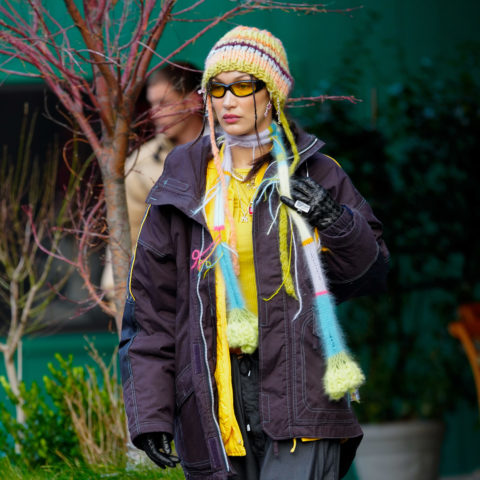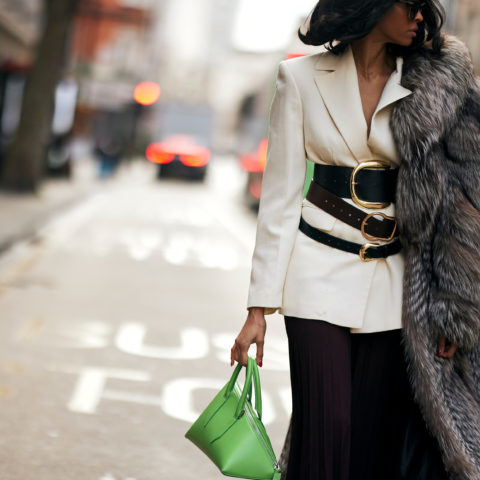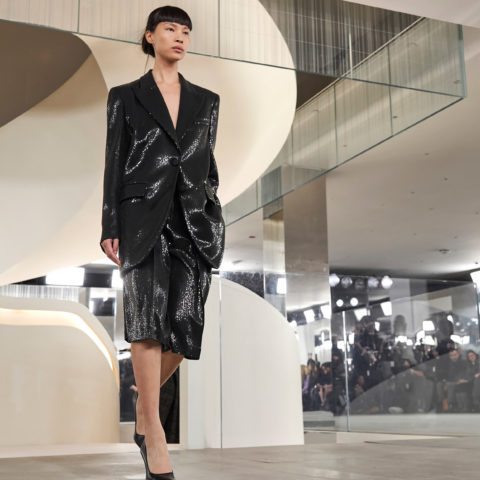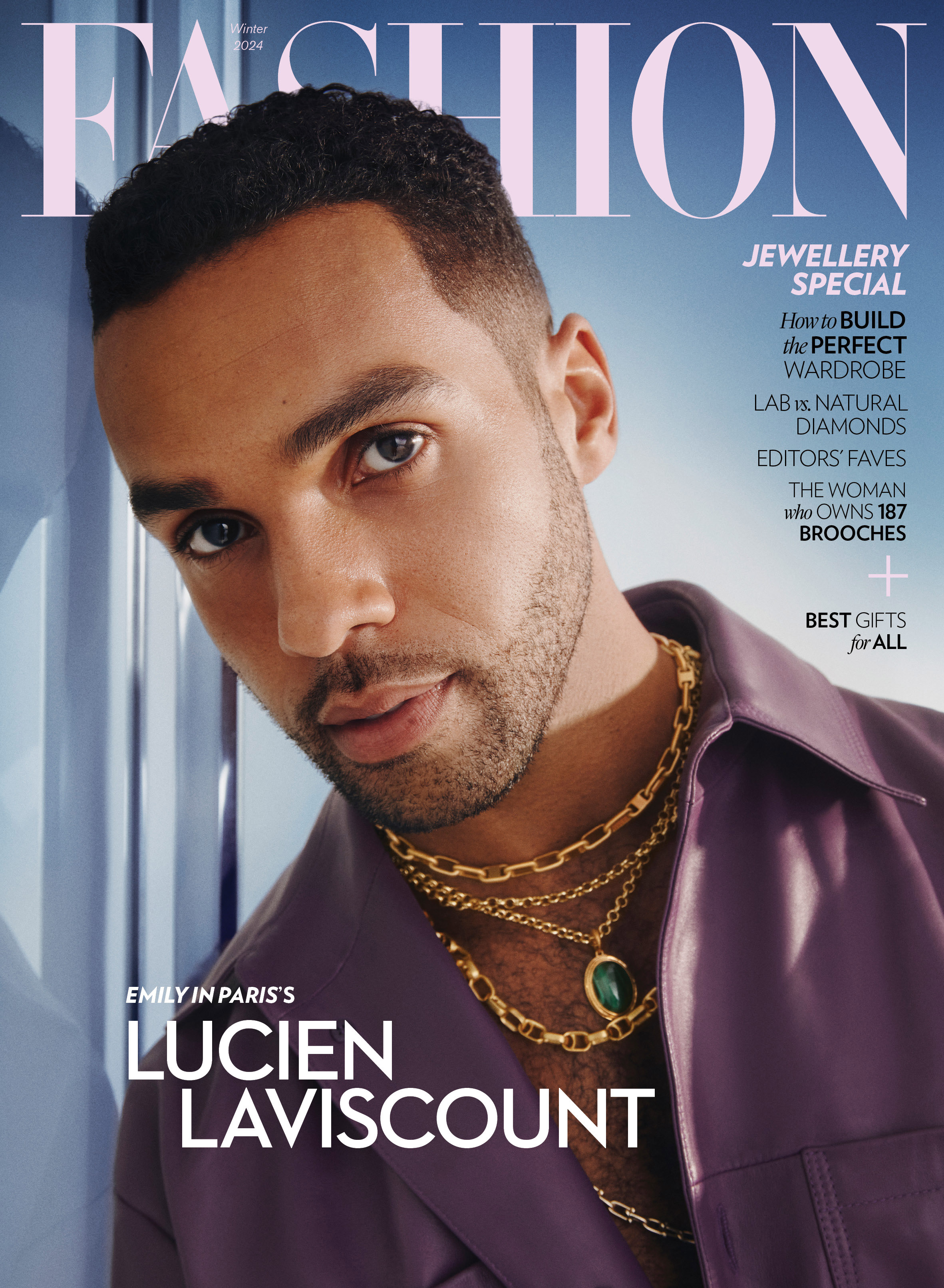The “Weird Girl Aesthetic” is Harajuku Style Reborn
This whimsical trend will make you rethink the boundaries of personal style.
In theory, clothing can never be ugly. I mean, at its core, styling is all about self-expression. So what makes us think that some things are fashionable and others are not? That’s the question surrounding the new “weird girl aesthetic.”
Earlier this week, a tweet that shared photos of different women in eclectic outfits featuring mismatched patterns, child-like colour combinations and fuzzy accessories went viral. “Is it anti-fashion? Are people trying too hard just to look ugly? Does it only work on Bella Hadid?” it read. (The answer to each of these questions is “no,” and I’ll explain why.)
the weird girl aesthetic. is it anti-fashion? are people trying too hard just to look ugly? does it only work on bella hadid? let's discuss pic.twitter.com/lRZZJ0JoAK
— ً (@KAlAGEBER) May 7, 2022
Bella Hadid’s street style has become an object of fashion fascination. Her coffee-run outfits, often comprising re-worn pieces, lots of layers and cutesy hair accessories, are put together without the help of a stylist. In fact, unlike most A-list celebs, Hadid hasn’t had a full-time stylist in two years.
“When I leave the house in the morning, what I think about is: Does this make me happy? Do I feel good in this and do I feel comfortable?” she told the Wall Street Journal in a recent interview. And that’s the ethos behind the “weird girl aesthetic.”
Colourful patterns, mixed textiles and playful accessories like chunky rings and fuzzy bags are thrown together haphazardly to create a statement-making #OOTD that is delightfully random. And while mismatched socks and cartoon heart motifs might be weird to one person, they’re the epitome of fashion to another. That’s the beauty of it.
This type of kitschy, inventive dressing is nothing new. It can be traced back to the late ’90s and early 2000s street style of Japan’s Harajuku district. In the early 1980s, Harajuku became a shopping hub where experimentally dressed teens and street performers would gather in unique and expressive outfits.
Popularized by the photographs in Fruits Magazine, Harajuku fashion was a youth-led rejection of societal norms. And thanks to the variety of subcultures within the rebellious fashion movement, there was room for endless creativity and diversity.
harajuku street styles were such a big influence for me when i was younger; truly the freest fashion experimentation out there at the time pic.twitter.com/LUJfQO2IMa
— mina le (@gremlita) May 8, 2022
The West has long taken inspiration from this Japanese style. In 2004, Gwen Stefani named her first solo concert tour “Harajuku Lovers,” and Nicki Minaj’s famous alter ego “Harajuku Barbie” channels its imaginative attitudes. Influencers like Sara Camposarcone, Clara Perlmutter and Rowan Blanchard sport maximalist wardrobes reminiscent of the movement. Contemporary clothing brands, too, employ this playful weirdness in their designs, like Heaven by Marc Jacobs and smaller labels Minga London, Tunnel Vision and Unif.
The colourful kitschiness of expressive dressing is taking over the fashion world. And the original tweet’s suggestion that this aesthetic “only” works on someone who looks like Bella Hadid forgets the communities that first popularized it. Fashion can be fun for everyone — that’s the lasting message of Harajuku.
View this post on Instagram
More-is-more style aesthetics are a welcome rejection of the powerlessness and restriction we’ve all felt during the pandemic. With much of our lives migrating online and WFH becoming the new norm, we’re going through yet another style revolution. As such, the lines of what constitutes “good” or “bad” fashion have been blurred — leaving us to wonder whether we need those labels at all.
The “weird girl aesthetic” disrupts the repetitive dressing born from the explosion of micro-trends (like the Miu Miu micro-mini skirt featured on many an influencer’s Instagram feed). It encourages wearers to hunt for unique, special pieces that can be re-worn as part of a capsule wardrobe. And by promoting unique personal style, it’s the antithesis of fast fashion and overconsumption.
View this post on Instagram
Cute to some, ugly to others, this new wave of dressing leaves room for interpretation and encourages total style freedom. It’s not anti-fashion. It’s ultra-fashion.








